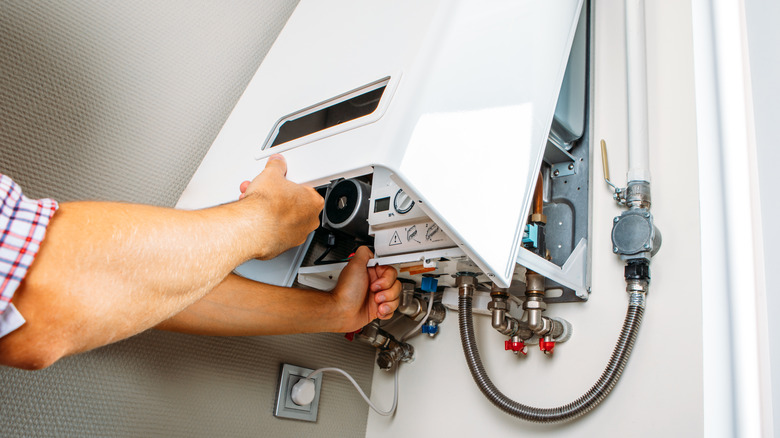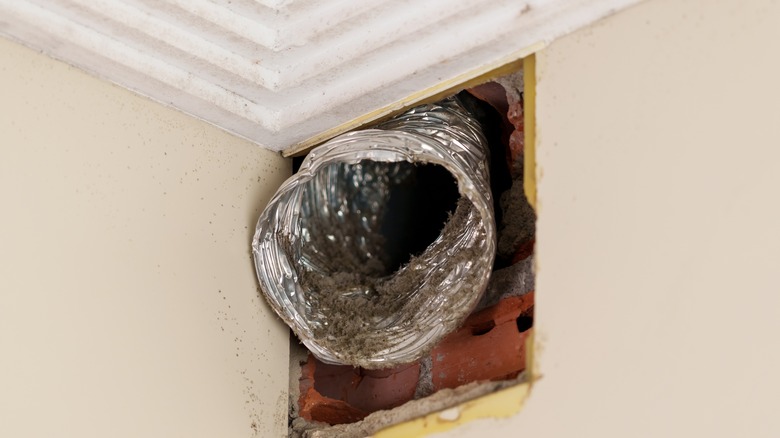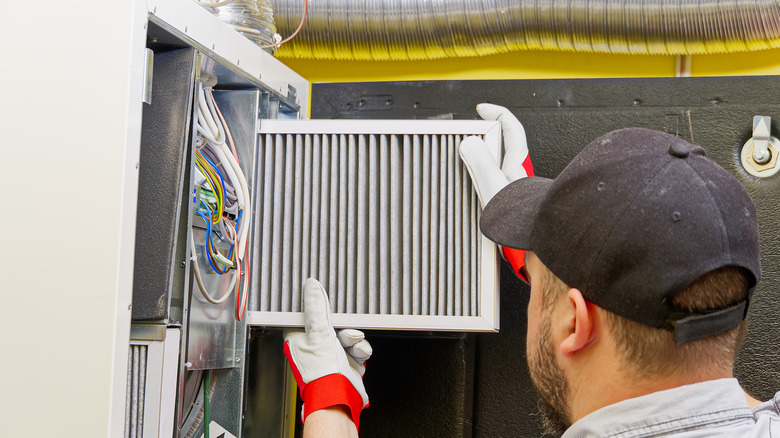Why Your Heater Smells Like It's Burning (And What To Do About It)
We may receive a commission on purchases made from links.
Picture this: it's the middle of winter, and the cold is biting. The wind howls as it whips against your windows, but inside, you're bathed in the comforting glow of warmth exuding from your heating unit. That is until a sudden smell of burning disrupts your serene setting. Why could your heater be smelling like it's burning? Before you get on the phone with the fire department or the HVAC professional on standby, pause. The burning smell willowing from the heater isn't necessarily a cause for immediate panic but certainly warrants your attention. Often, the solution lies in doing a little detective work first. Electrical glitches, an old or dirty filter, dust, or rogue debris lodged in your heating system could all be potential culprits behind that mysterious odor.
With the cost of repairing a heater running from $75 to $500 or more, the financial sting may leave you eyeing your unit with resentment. Seizing the wheel to conduct a thorough investigation yourself and implement the necessary remedies, though, does more than save some cash on heating repair. It can offer a sense of satisfying accomplishment, knowing you've faced down the metal beast and emerged victorious. And even if your diagnostic stint doesn't render the desired outcomes, you pushed the boundaries at least, and that counts.
More on why your heater is smelling like it's burning
Picture your heater playing the role of "Sleeping Beauty" during the warmer months, with dust setting up camp on the heat exchanger, burner, and other heating components. When the equipment gets woken from its slumber, the burning accumulated dirt could catapult that distinctive burning smell into your airspace. Your furnace filter could also be to blame. Old or neglected, the component can constrict airflow, giving the impression of a blocked artery, thus inducing your heater to overheat. This desperate struggle manifests as the burning aroma you're sniffing out. When left unaddressed, this rising temperature could cause your system to tap out entirely as a last-ditch act to prevent complete ruin.
Moving deeper into why your heater smells like it's burning, inspect for electrical troubles within your HVAC. Overheated wire insulation emits a smell reminiscent of molten plastic. Overlooking this could give birth to the nightmare of a damaged blower motor or heat exchanger. Scope further down this mysterious trail and you might find tiny misplaced treasures like toys setting camp in the depths of your ductwork. These villains are poised to release a strange smell when heated. In addition, fur and dander from your pets may be clogging up the works, emitting an odor when you turn on your furnace. A dirty-sock stink, especially after use of the heater following a lengthy downtime, could signify a bacteria and mold siege.
How do you resolve the burning smell?
Cleaning will suffice for dust accumulated from heater disuse. Grab cleaning supplies, embrace your inner cleaning ninja, and dethrone the dust before switching on your furnace. When this smell lingers, you may have a more aggressive dragon to slay. If facing a dirty or clogged filter, it's a matter of cleaning or replacing. The Filterbuy 16x25x1 pack, going for $31 on Amazon, is a commendable choice for a pleated paper filter replacement. But suppose you're aiming for longevity and sustainability. In that case, consider an electrostatic option like the Air-Care 20x25x1 Washable Electrostatic HVAC Furnace Air Filter available at Walmart for $38.99. Please leave electrical issues to a competent HVAC technician.
Those foreign objects plotting a conquest inside your ductwork can be ousted with a vacuum or brush. And when it comes to mild mold infestations in your ductwork? You could use laundry detergent, invoke the effervescent power of baking soda, or rally the grease-cutting efficiency of dish soap. If the opponent proves stubborn, level up with an EPA-approved mold fogger. However, involve a professional for a severe mold infestation. Prevention is your best bet for hair or dander from our furry friends. Choose filters engineered to catch these HVAC interlopers. Regular vacuuming will keep airborne particles from staking claim within your home. And if the burning scent persists despite your efforts? Please seek professional assistance. But remember, proactiveness is key to prolonging your HVAC system's lifespan.


